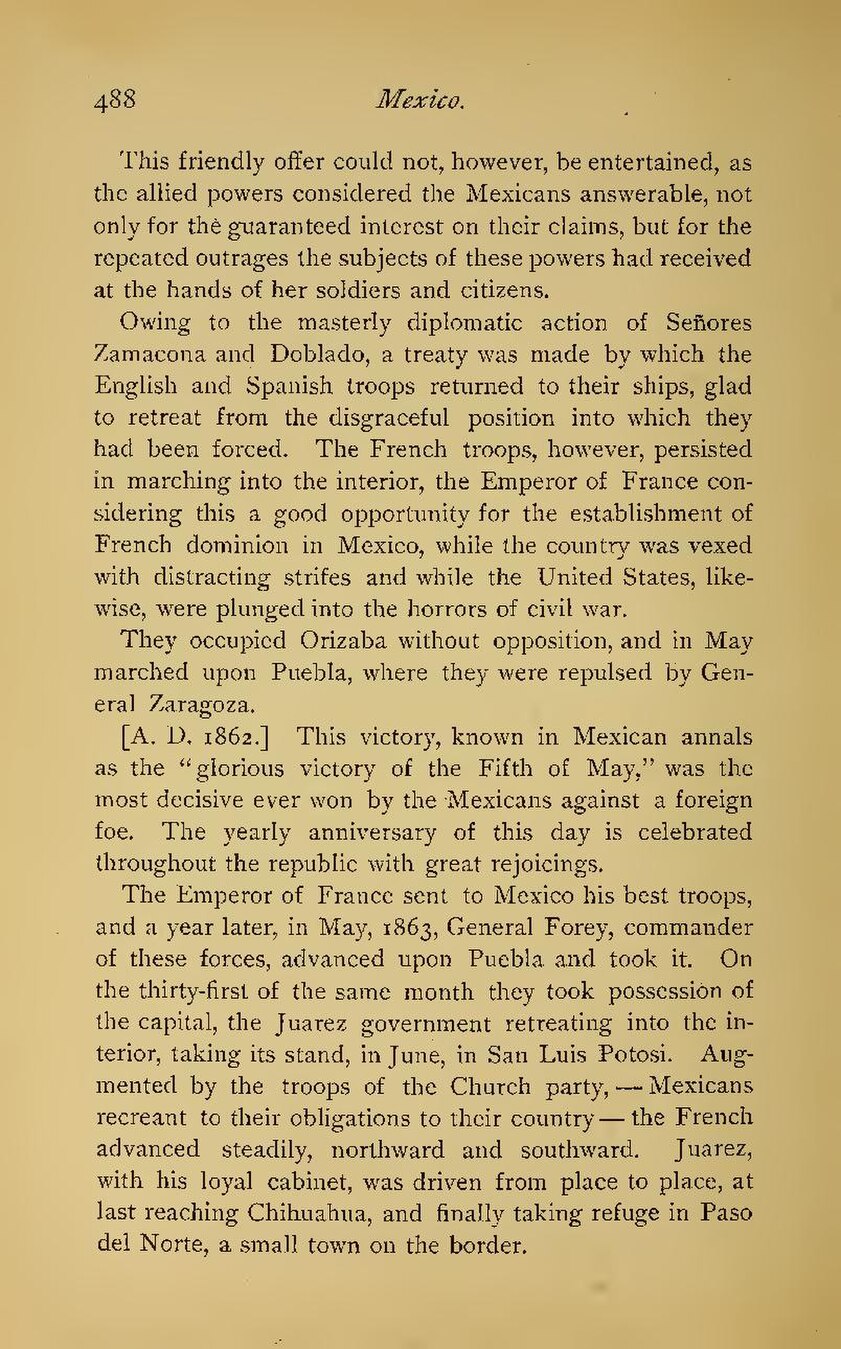This friendly offer could not, however, be entertained, as the allied powers considered the Mexicans answerable, not only for the guaranteed interest on their claims, but for the repeated outrages the subjects of these powers had received at the hands of her soldiers and citizens.
Owing to the masterly diplomatic action of Señores Zamacona and Doblado, a treaty was made by which the English and Spanish troops returned to their ships, glad to retreat from the disgraceful position into which they had been forced. The French troops, however, persisted in marching into the interior, the Emperor of France considering this a good opportunity for the establishment of French dominion in Mexico, while the country was vexed with distracting strifes and while the United States, likewise, were plunged into the horrors of civil war.
They occupied Orizaba without opposition, and in May marched upon Puebla, where they were repulsed by General Zaragoza.
[A. D. 1862.] This victory, known in Mexican annals as the "glorious victory of the Fifth of May," was the most decisive ever won by the Mexicans against a foreign foe. The yearly anniversary of this day is celebrated throughout the republic with great rejoicings.
The Emperor of France sent to Mexico his best troops, and a year later, in May, 1863, General Forey, commander of these forces, advanced upon Puebla and took it. On the thirty-first of the same month they took possession of the capital, the Juarez government retreating into the interior, taking its stand, in June, in San Luis Potosi. Augmented by the troops of the Church party,—Mexicans recreant to their obligations to their country—the French advanced steadily, northward and southward. Juarez, with his loyal cabinet, was driven from place to place, at last reaching Chihuahua, and finally taking refuge in Paso del Norte, a small town on the border.
